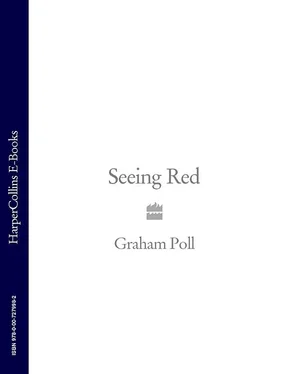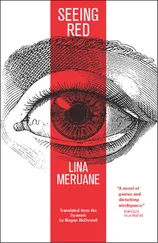I was not quite sure what that was about. But I was sure that Julia and I would never ‘get away from it all’ while I remained controversial Graham Poll, the referee who made the huge mistake in the World Cup. I started to understand that the 2006/07 season should be my last as a referee.
There is no upper age limit for referees in England now, thanks to anti-age discrimination laws. But FIFA referees must retire from the international list at the end of the calendar year in which they reach 45. So I would come off the international list in 2008, and I had always intended to stop refereeing altogether that year. The plan was that I could either quit after the 2008 European Championships or at the end of that year. I would not continue refereeing in England without the international badge. I had worked so hard to earn it.
After the 2006 World Cup, I knew I would not be going to Euro 2008. But once I had decided not to quit there and then, I still had 2008 in my mind as my retirement year. That meant at least two more seasons and possibly two and a bit. But as the first of those two seasons unfolded, and I became dispirited and disillusioned, I began to think that I would hang up my whistle – as the cliché goes – in the summer of 2007.
In November 2006 I went to see Graham Barber – the ex-referee and a good, good friend – at his place in Spain and he said, ‘Get through this season and then see how you feel.’ He told me I should not let ‘them’ beat me. By them, he meant the unsupportive football authorities. But, increasingly in the next few months, I began to suspect that I was already beaten.
I had come home from the World Cup with a terrible, mortal wound. To keep going for two more seasons, as I wanted, I needed support from the FA. Yet they allowed my integrity to be questioned. Instead of supporting me, the FA just looked on as my wound was ripped open and made worse.
In December 2006, I refereed AC Milan against Lille in the Champions League. As the teams were waiting in the tunnel before the tie, Dario Simic, Milan’s Croatian midfielder, came over to me. I had sent him off on that fateful night in Stuttgart. In Milan, Simic looked me straight in the eyes and said, ‘I am so sorry for what happened. We knew Simunic had already been booked. We should have told you. I am so sorry.’
Lille won 2–0. After the game, Simic came over to me again. He repeated. ‘I am sorry. Please accept my shirt.’ I did not know whether to laugh or cry, hug him or hit him. In the end, I just accepted the shirt – in the spirit in which it had been offered.
Later, Simunic promised to send me a shirt as a memento of the night we made history. I accepted that gesture as well with as much good grace as I could muster. But there could be no closure about Stuttgart. Every time I was involved in a refereeing controversy, it coloured people’s perception of what had happened and was usually mentioned in the media reports.
Yet one game gave me a glimpse of how things might be different for me, and for all referees – if all managers were as honest as Stuart Pearce. In the very next match I reffed after going to Milan, I red-carded Manchester City’s Bernardo Corradi in the final minutes of a defeat at Old Trafford. I had already cautioned him and then, in my opinion, he ‘dived’ to try to win a penalty. I cautioned him again and so sent him off.
My decision was widely praised, but only because Pearce, the City manager, backed me and not his player. Pearce said, ‘I have no complaints about the sending-off. Bernardo went down a little bit too easily and I am not like the other nineteen managers, who would sit here and give you a load of cock and bull about it.’
Great. That is what you want to hear when you have sent someone off. How could the fans or the press have a go at me when Pearce had not? That lifted my spirits, and that game at Old Trafford was followed by a run of matches which went well. But then my last two assignments of 2006 brought two more rows.
Late in the Charlton versus Fulham match, on 27 December, assistant referee Steve Artis flagged for handball by Charlton’s Djimi Traore. I was in no position to see, so I backed my assistant. Fulham equalized from the free-kick. TV replays showed it was not handball and so Charlton, who were battling to avoid relegation, felt robbed. After the game, Charlton manager Alan Pardew complained, ‘In the last few minutes of the match, when my players have forgotten what it’s like to win a game of football, I expect them to be nervous and make silly mistakes. I don’t expect match officials to make similar mistakes.’
The point, surely, is that officials do make mistakes, exactly like players. It was Artis’s first season but I wrote in my official report that I would be happy for him to run the line in any game I refereed. He had been outstanding until that one, human, error.
Then, with four days of 2006 remaining, I was fourth official at Vicarage Road for Watford against Wigan. In the second half, with the score at 1–1, torrential rain turned the pitch into a paddy field. Steve Tanner, who was in charge of his second Premier League game, asked my advice but it was still his decision to abandon the game. It was the correct decision, as well. But it was not the weather or even the ref who got the blame. According to the many media reports that highlighted and criticized my involvement, it was me. When I raised a glass on New Year’s Eve, the toast was, ‘Good riddance to 2006.’
January was like December, with ups and downs. I believe the expression is ‘a rollercoaster of emotions’, but the truth is that, by then, I knew I wanted to get off the ride. That thought became sharper and more definite in January and soon it was an irrevocable decision. There were still plenty of ‘ups’ but they were never sufficient to make me change my mind. The 2006/07 season would be my last.
On the last day of January, I was appointed to a Chelsea match for the first time since John Terry had made up that story about me. The Premier League had waited and waited, but we all knew that I had to officiate with Chelsea again.
Terry was injured and not playing. But as I was warming up, he walked past me and made a small gesture of acknowledgement – a slight nod and a partial raising of his open palm. Was it to say, ‘Hello’? Was it to say, ‘Sorry’? Who knows?
The other Chelsea players started the game by ignoring me completely – not rudely, but just not indulging in any of the usual banter or comments. Then, slowly, things began to get back to normal. At one point, when Ashley Cole was being put on a stretcher, Didier Drogba said to me, ‘Ignore all of them. We know you are a good referee.’
By ‘all of them’ he could have meant the crowd, who were abusing me, or the media or even the other Chelsea players. I didn’t know what he meant, and it didn’t matter. He was just trying to encourage me. With that, he went to give me a ‘high five’. I responded instinctively and we slapped palms. I dare say I got more criticism for that – for being over-familiar with players and a bit too ‘show biz’, but, for me, it was a lovely moment. There were other good moments too, but by then I knew I was going to finish.
When I had decided, after Germany, to keep going, it was the right decision but for the wrong reason. I had thought, ‘You could get a Champions League Final, Pollie,’ but that was the wrong type of motivation. You can’t referee just because of the possibility of one match – not least because, as happened in 2005, 2006 and 2007, English teams might reach the Champions League Final which would mean I could not referee it. Carrying on purely for the chance of a Champions League Final was the wrong motivation for another reason as well. It was wrong because the only inducement that really works is that you love it – and I no longer did.
Читать дальше












